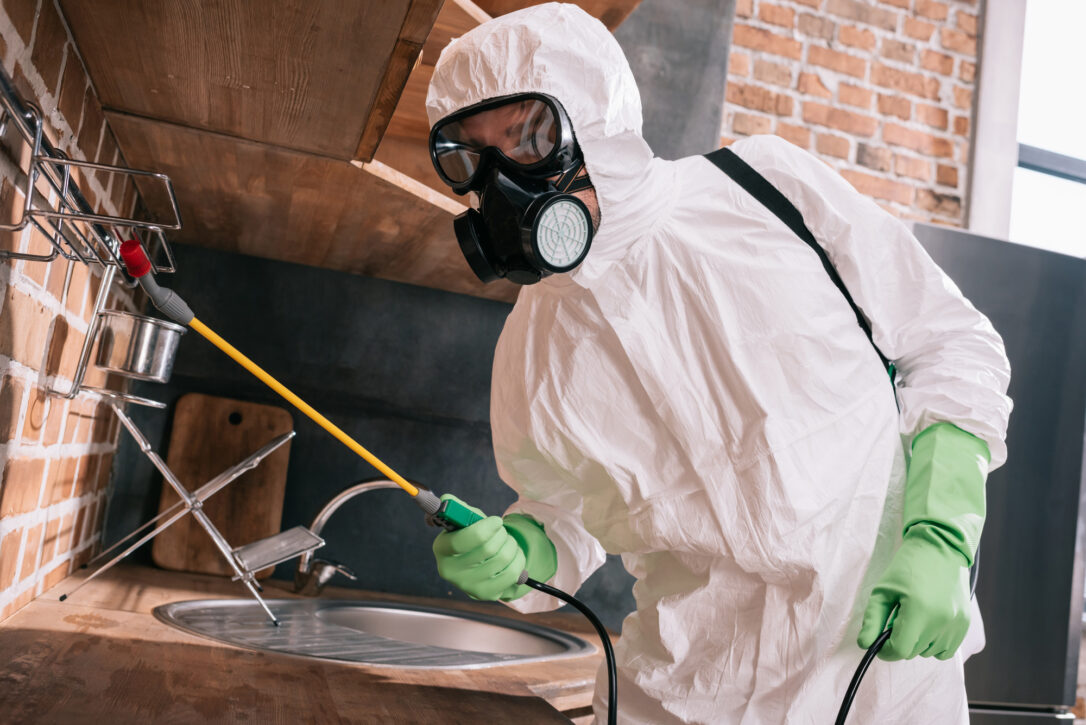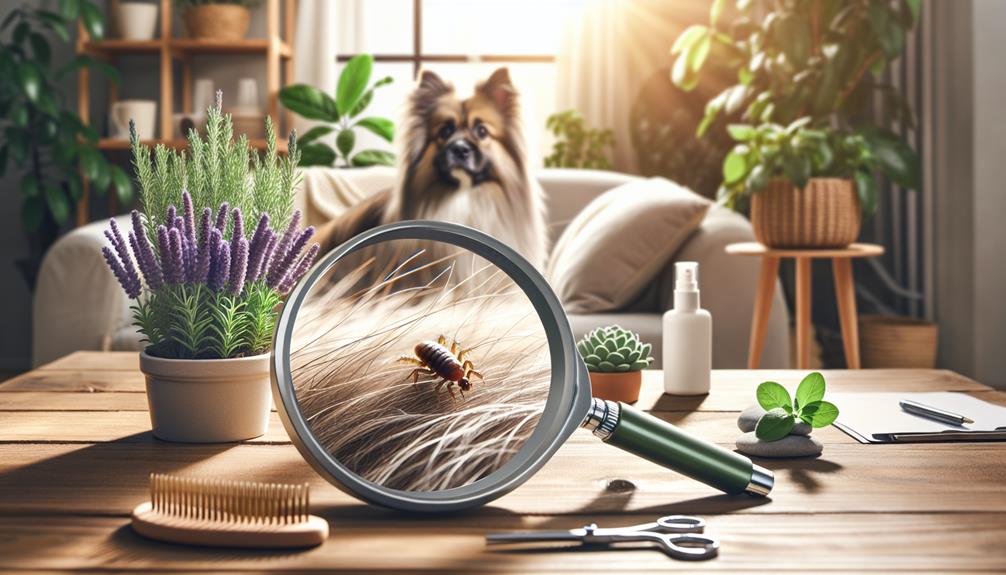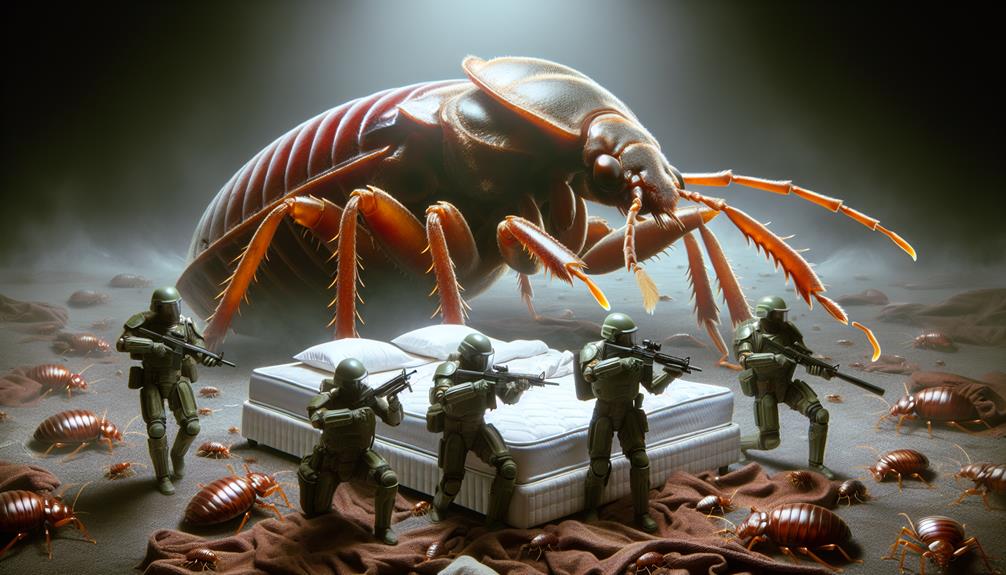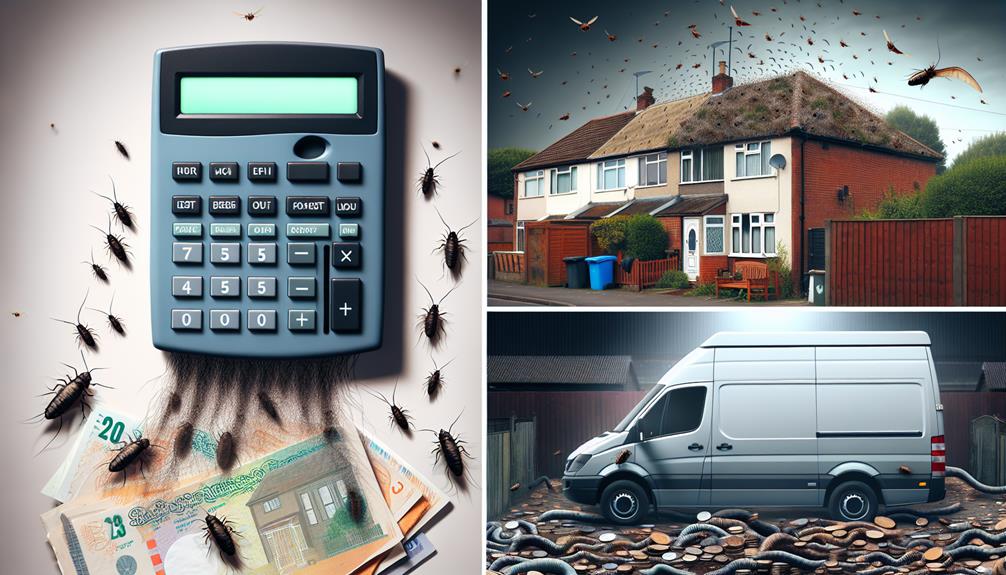Table of Contents
Pest control is an important issue for UK homeowners, especially during the summer months. It’s essential to be aware of the top tips and tricks that can help you keep your home free from pests. I’m a pest expert, so here are my top 10 pest control tips for UK homeowners to help them keep their homes clean, safe and healthy!
These tips will not only help protect your property but also give you peace of mind knowing that there won’t be any unwanted visitors in your home. They cover everything from prevention techniques to removal methods, as well as how best to deal with infestations if they do occur. So whether you’re dealing with rats, mice, cockroaches or other pests, these helpful hints should help get rid of them quickly and effectively.
Prevention Techniques
Preventing pests from entering your home is the best way to keep them away. Regular inspections of your property and effective sanitation practices are key elements in pest control for UK homeowners. Inspections should be conducted both inside and outside of the house, ensuring you check all potential entry points such as windows, doors and air vents. Pay special attention to areas where food is stored or prepared like kitchens, pantries and dining rooms. Make sure that any cracks or crevices are sealed off securely so no unwanted visitors can gain access.
Sanitation also plays an important role in deterring pests. Thoroughly clean up after meals, storing leftovers in airtight containers when possible. Ensure garbage bins have lids firmly attached to prevent odours from attracting insects or rodents into your home environment. Vacuum carpets regularly and mop floors frequently with a disinfectant solution to reduce opportunities for pest infestations.
By following these preventive steps, you can help ensure that your home remains free from unwelcome guests. That said, it’s still important to know what type of pests you may encounter and how to identify them…
Identifying Pests
Identifying pests is an important step in the pest control process. It’s essential to accurately identify what kind of pest you’re dealing with before any action can be taken, as different species may require different strategies. To this end, it’s a good idea to perform a habitat analysis of your property – look for potential breeding grounds and sources of food or shelter that could attract unwelcome visitors. Additionally, you should take note of any visible signs such as droppings, damage caused by chewing or burrowing, or physical sightings. This will help you narrow down possible suspects so that you can decide on the best approach for removal.
The next stage requires us to assess the severity of the infestation and determine whether we need to use baits or traps rather than chemical treatments. If there are multiple entry points into your home, it’s important to inspect these areas closely; check around doorframes and windowsills where tiny cracks might provide access to unwanted guests. Look out for any gaps between walls and floors too – this could indicate a more serious problem if not addressed quickly enough.
Once all possible entry points have been identified, the focus shifts towards preventing further instances of invasion. The only way to do this effectively is by sealing up vulnerable openings using materials like caulk and weather-resistant sealants; once complete, additional steps should be taken to ensure no new breaches occur over time. With these measures in place, homeowners can rest assured knowing their properties won’t become havens for invading pests anytime soon! Time now then to move on sealing those pesky entry points…
Sealing Entry Points
Sealing entry points is one of the most basic, yet effective ways to help prevent pest infestations in your home. By sealing any cracks or holes that could be providing an entrance for pests into your home, you can greatly reduce the number of invasions. Start by inspecting both the interior and exterior walls of your house, as well as door and window frames; look closely at any gaps between two surfaces where a pest might squeeze through. If you find anything suspicious, use caulking or weather-stripping material to seal it up.
Using repellents can also be helpful in deterring pests from entering your property. You may consider using natural products such as peppermint oil, cayenne pepper powder or citrus sprays around the perimeter of your home – these odours will act as deterrents and make it less likely for insects to enter. Alternatively, there are chemical treatments available from garden centres which can be used around external doors and windows to stop pests from making their way inside.
Setting insect traps near entrances to your home can also prove useful in limiting unwanted intrusions. These traps contain attractants which lure bugs towards them before trapping them with sticky surfaces – removing the need for pesticides! Consider placing several traps close together but out of reach so they don’t pose a risk to children or pets; this will give you time to take action against any potential infestation before it becomes serious. To effectively limit access to food sources within your home…
Removing Food Sources
Now that your entry points are sealed, the next step in pest control is to remove food sources. Pest-proofing your home can help reduce any potential infestation of pests. This includes storing all food items in airtight containers and frequently cleaning up crumbs and spills. Additionally, making sure garbage cans have tight-fitting lids will also help keep out rodents or insects looking for a meal.
Good sanitation habits are essential when it comes to pest prevention. Make sure to regularly vacuum carpets and mop floors with hot soapy water. Clean dishes immediately after use and wipe down countertops before going to bed each night. Also, make sure to take out the trash often and seal compost bins tightly if you have them on your property.
These steps outlined above can go a long way toward keeping pests away from your home; however, if an infestation does occur, it may be time to call in professional pest control services. Experienced exterminators know how to identify problems quickly and provide effective solutions tailored specifically to your needs.
Professional Pest Control Services
For major infestations and cases of severe pest damage, it is recommended to seek out the help of a professional pest control service. Professional services use methods that are safe for both humans and animals while being effective in eliminating invasive pests from your home. They can also provide valuable advice on how to maintain sanitary habits and regularly inspect your property so you can stay one step ahead of any potential invasions.
A professional pest control company will be able to assess the situation quickly, determining what type of extermination plan is necessary based on their expert knowledge. The team may choose to utilize chemical treatments or physical removal techniques depending on the severity of the issue at hand. In addition, they should always advise you of proper safety measures such as sealing cracks and crevices around windows or doors where insects might enter your residence.
Once you have taken advantage of professional assistance, it is time to think about dealing with future infestations before they become a problem. A key part of this process involves prevention: inspecting areas where pests typically hide and taking action when spotting signs of activity early on. Homeowners should also consider using insect repellents indoors and outdoors, as well as keeping food sources stored away properly in airtight containers or inside refrigerators when possible. With these strategies in place, homeowners can more effectively protect themselves against unwanted guests moving forward.
Dealing With Infestations
Once you’ve decided it’s time to call in the professionals for pest control services, there are still a few steps homeowners can take to prevent future infestations. It’s important to remember that prevention is always cheaper and easier than trying to deal with an existing infestation. Here are some tips for keeping pests out of your home:
- Develop good cleaning habits. Vacuum often and don’t forget hard-to-reach places like behind appliances or underneath furniture. Wipe down surfaces regularly, including counters and tables where crumbs may accumulate. Don’t leave dishes or food scraps in the sink overnight as this can attract pests.
- Practice habitat management techniques around your property. Keep grass cut short, remove piles of leaves or other debris from outside the house, and store firewood away from your house’s foundation. Seal any cracks in exterior walls to keep rodents out.
- Monitor your pet’s outdoor activity closely. fleas can be brought inside on their fur, so make sure you bathe them frequently and use flea treatments recommended by your veterinarian when necessary. Also, check for ticks after walks or trips outdoors as they too can spread disease if not removed promptly.
By following these simple tips and calling in professional help when needed, UK homeowners will be able to better protect their homes against infestations of all kinds!
Frequently Asked Questions
What Kind Of Pests Are Most Common In Uk Homes?
Rodents, insects and other pests can be a major problem for UK homeowners. The most common pest problems are mice, rats, wasps, ants and cockroaches. To prevent these pests from becoming an issue in your home, it is important to use rodent repellents and insect traps around the house. Depending on the species of insect or rodent you may need to take extra steps such as sealing any cracks or crevices where they may enter. Regular inspections by a professional pest control service is also recommended.
What Are Some Natural Pest Control Methods?
When it comes to pest control, natural methods can be an effective way of taking care of the problem. Natural remedies like boric acid and diatomaceous earth are great options for those looking for a non-toxic approach. Biological controls such as nematodes and ladybugs are also available to help reduce the number of pests in your home. Finally, introducing certain plants into your garden or yard can help deter certain species from entering your property. Taking these simple steps can go a long way in helping you keep your house free of unwanted critters!
How Can I Prevent Pests From Entering My Home In The Future?
Prevention is always better than having to cure a pest problem. To prevent pests from entering your home in the future, it’s important to use deterrents and proofing methods. Pest control experts recommend sealing up any cracks or holes around windows, doors, foundations and pipes with caulking or mesh screens so that rodents can’t enter your home. Additionally, you should make sure all food scraps are disposed of properly and keep your kitchen counters clean. Finally, keeping plants trimmed back away from your house will also help deter pests as well as make sure there are no water sources near the outside of your property for them to drink from. With these simple steps, you’ll be able to start preventing pests from getting into your home before they even get close!
What Is The Most Cost-Effective Way To Get Rid Of Pests?
When it comes to getting rid of pests, the most cost-effective way is to use a chemical-free approach. This includes attracting natural predators or using traps and baits instead of sprays. You can also take preventative measures such as sealing off entry points and removing any food sources that may be attractive to them. By taking these steps you can help ensure that your home remains pest free without spending too much money.
How Do I Know If I Need Professional Pest Control Services?
When it comes to pest control, the best way for UK homeowners to know if they need professional assistance is by doing a DIY inspection. Start by looking around your home and inspecting any entry points or potential nesting spots where pests could be hiding. If you notice signs of an infestation such as droppings, gnaw marks, or foul odours then it’s likely time to call in a professional. Even if you don’t see evidence of pests, environmental maintenance is key in preventing future infestations. Regularly cleaning behind and under appliances, sealing cracks and crevices, and keeping food stored properly can help stop unwelcome guests from entering your home.
Conclusion
It’s important to be proactive in pest control. Regularly inspect your home and take steps to prevent pests from entering, such as sealing cracks in foundations or around windows and doors. There are a variety of natural pest control methods you can use that are cost-effective and safe for the environment. If these DIY methods don’t work, it might be time to call in an expert.
Pest control specialists have the tools and experience necessary to identify, target, and eliminate any infestation quickly and efficiently so that you can get back to enjoying your home without worrying about pests!
You may also enjoy reading this article
Was This Article Helpful?
- Please provide feedback and comments to help us improve our content.
- Share your experiences and any additional tips you have for dealing with pests.
Share this Post



